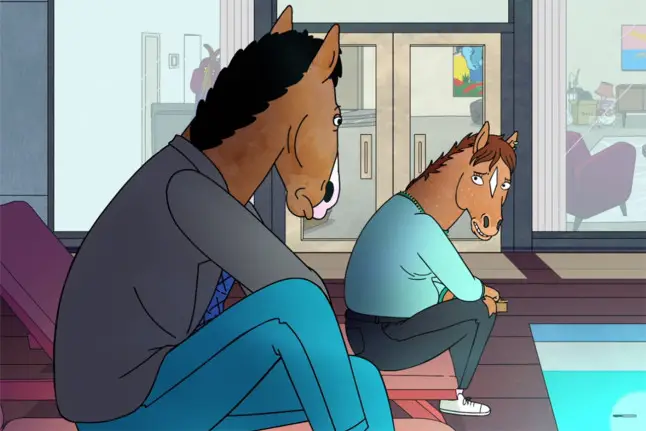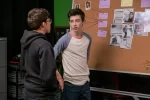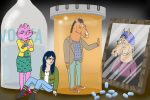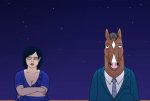When it comes to television and humor, there are many different types of comedy. Dark comedy, simply put, is making jokes about things that aren’t funny, like death, violence, trauma, sexuality or religion. While this kind of humor was once tongue-in-cheek and sometimes downright offensive, comedians and show writers are turning this genre around to open up dialogues on otherwise taboo subjects.
Multiple studies have found that people with higher levels of intelligence and lower levels of aggression have a greater appreciation for dark humor. Dark comedy usually has several layers one must navigate through in order to understand the implications that make the joke funny and not simply offensive. Some suggest that the further away one is from the subject matter in their lives, the more they can appreciate the humor of it.
I would caution those who enjoy dark humor to be conscious of what they’re laughing at because not all humor is harmless. You should remember that when you make something the butt of a joke, you normalize it.
Both Plato and Thomas Hobbes believed that comedy could only be derived from somebody else’s expense, a concept known as the Superiority Theory; nowadays, this schadenfreude often involves marginalized groups. The humor of “Family Guy,” amongst others, comes to mind.
There are also jokes in poor taste that should never be entertained, period. For instance, rape jokes that trivialize the victim come at the expense of a startlingly high number of people who have been raped or sexually assaulted. Making a joke about such an event normalizes rape and keeps these victims in a position where they feel as though they cannot come out about their experiences.
Making a witty remark about rape culture, however, can bring an appropriate spin to a dark topic and create a dialogue around it. This kind of spin makes you laugh not because it’s inherently funny, but because how sad it is that it’s true. This barbed social criticism makes you think about the bad social situation that we’re all in, and you laugh because it’s like getting the urge to crack up during inappropriate situations.
Don’t get me wrong — the topic is grim no matter what. But that’s the nature of dark comedy. The part we need to be aware of is whether or not that humor comes at the expense of others.
Introspective dark comedy, on the other hand, is a better alternative to the once-relied-upon, surface-level, racist, sexist, ableist, miscellaneous “-ist” jokes of just a decade ago. In this more reflective breed of dark comedy, instead of laughing at others, characters make jokes at their own expense. In turn, you laugh at the part of you that you see in these characters.
Times are tough out there, y’all, and sometimes you just have to laugh at yourself and the crappy situation you find yourself in. By being able to see the nuance and absurdity of it through somebody else’s eyes, you can begin to dissect it. We see ourselves in the media we consume, and if we see characters that represent our struggles, it may just help us understand ourselves that much more.
In addition to using this dark introspective humor, TV shows can also create macabre comedy by juxtaposing bleak situations with humorous ones. You’re laughing at something funny one minute, and before you know it, something serious is delivered in a deadpan manner, bringing the situation more gravity than it could have achieved on its own. Like a “ha ha, oh s—” kind of thing.
“Rick and Morty” and “BoJack Horseman” are two dark comedies on TV that purposely handle tough topics, such as addiction and depression. For instance, one “Rick and Morty” episode, “Auto Erotic Assimilation,” casts a comical spin on the loneliness and depression of its protagonist, Rick Sanchez. In the show, Rick, a super-genius scientist, reconnects with his ex-lover Unity, a hivemind parasite that embodies everyone on an alien planet. The two quickly spiral into increasingly more ridiculous and dangerous shenanigans. Rick’s grandchildren, Morty and Summer, encourage Unity to leave Rick because he is not good for her.
When Rick and Unity first reconnect, Rick pulls away from their embrace, saying, “Wait, wait. Stop. Hold it. Not like this.” The viewer assumes that Rick is going to put a stop to it before he continues, “We need a hang glider. And a crotchless Uncle Sam costume and I want the entire field of your largest stadium covered end-to-end with naked redheads. And I want the stands packed with every man that remotely resembles my father.” And then they do just that.
The absurdity of their sexual encounters is funny, which makes the last couple minutes of the episode all the more heartbreaking. Unity takes Summer’s advice and dumps Rick, who returns home to his family. He retreats to the garage and unfreezes a creature that was clearly frozen because it was in pain. He comforts the creature before disintegrating it with a laser. He puts his head in the machine, ready to meet the same fate, before he passes out drunk, barely escaping death.
This episode speaks volumes of the unspoken battle of loneliness and how two people who are passionate for each other can sometimes bring out the worst in each other.
In Season 4 of “BoJack Horseman,” a criminally intelligent and depressing series created by Raphael Bob-Waksburg, Episode 6 lets viewers inside BoJack’s mind as he thinks awful things about himself in what is an average day for him.
BoJack is a notoriously depressed, egotistical and self-sabotaging character, but hearing his thoughts provides an unadulterated view into how he really feels about the circumstances of his life. These thoughts, while certainly demeaning to himself and sometimes others, open up a dialogue on what depression actually looks like.
BoJack spends the entire episode calling himself a “piece of s—.” He goes out to get milk for his family, internally spiraling because he’s obsessed with what his family must be saying about him in his absence. In his spiraling, BoJack thinks, “Why don’t you do the world a favor and swerve into oncoming traffic? No, you don’t deserve to die young. Only the greats die young. Oh, now you think you’re young all of a sudden?”
He ends up at the bar, promising he’ll only stay for one drink. In the blink of an eye, it’s dark outside and he is stumbling drunk back to his car. His self-deprecating thoughts stop long enough to think “Sober … now! Sober … now!” before haphazardly backing into a car and skirting another one on his way out of the parking lot.
BoJack dunking on himself is presented in a way that makes the viewer chuckle. What he thinks about himself is awful, but because it’s about himself with humorous one-liners mixed in, it’s funny.
https://www.youtube.com/watch?v=F06UDnWW1HI
At the very end of the episode, BoJack joins his daughter Hollyhock by the pool. She admits to him that there’s this voice in the back of her head that demonizes her and calls her terrible things. Quietly, she asks BoJack if that voice ever goes away, and he lies and assures her that it will go away one day.
After going through the episode in BoJack’s mind, hearing his harmful, depressive thoughts, Hollyhock’s question hits viewers all the much harder. It creates a dialogue on how depressed people actually think about themselves, and whether that trait is hereditary. It also shows how by being in your own head all day, you can fail to see how others may be going through the same thing.
“Rick and Morty” and “BoJack Horseman” are both excellent series that tackle dark comedy well. The characters are funny without actively putting anyone down but themselves. And through these narratives, we can be exposed to deeper issues, and examine what they’re really trying to say.
















